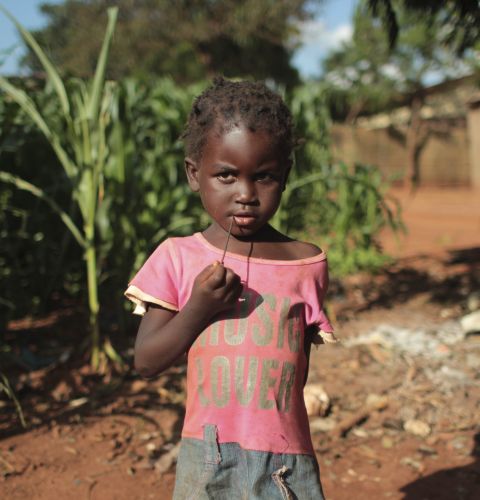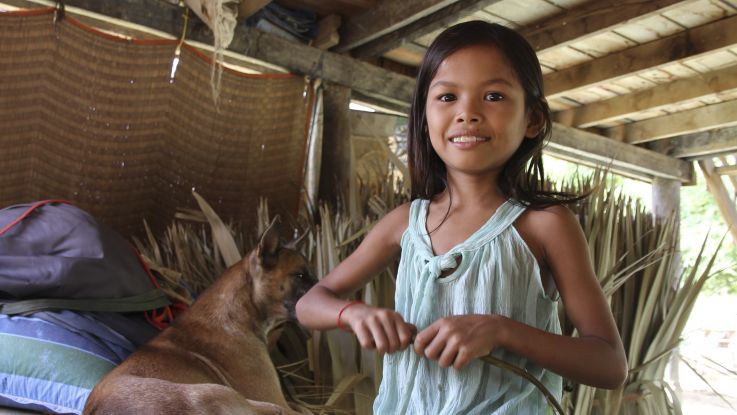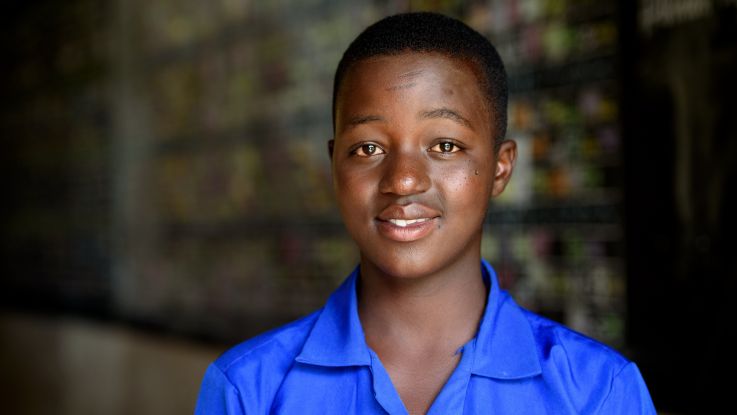Malawi
Why we work in Malawi
We have been active in Malawi since 1990 improving long-term access to food, water, healthcare and education.
Poverty is the root cause of almost all challenges facing the people of Malawi. Small-scale farmers lack the initial investment to buy tools, seed and land, girls are often forced to abandon education and marry to support their families and women suffer because they are denied their economic rights.
Financial stability has improved in recent years, with measures to tackle corruption being introduced, but the country remains one of the poorest in the world. Many families lack access to sufficient land and hunger is a widespread problem.
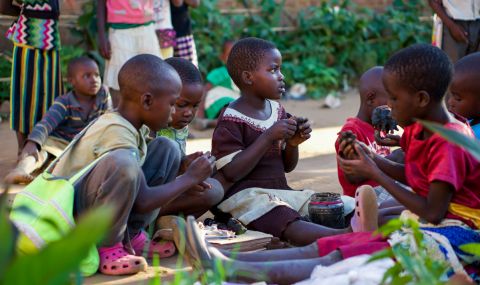
Mothers' groups are helping girls in Malawi to go to school, and get the education that is their right.
What we do in Malawi
Through our child sponsorship programme, ActionAid offers support and encouragement for girls to stay in education, working with local partners to provide mentors, houses for female teachers in rural areas and workshops for girls wishing to return to education. We work in adult literacy and partner with women’s forums to promote women’s rights within marriage.
We support women's forums, which are crucial in tackling violence against women and girls and child marriage. We help women farmers to develop sustainable farming practices to help them build a brighter future for their families, and we support local savings loan groups and seed banks.
We also support groups for people living with HIV and AIDS, fighting to improve access to anti-retroviral drugs and the nutrition necessary for these drugs to be effective.
Supporting people affected by Cyclone Idai
In March 2019, a devastating cyclone made landfall in southern Africa, affecting over two million people across Malawi, Mozambique and Zimbabwe.
One of the worst weather-related disaster to ever hit the southern hemisphere, Cyclone Idai killed at least 1,000 people and left 400,000 without a home.
In Malawi, we reached around 12,700 people with our initial rapid response.
We worked with local women’s forums to ensure the protection of women and girls in evacuation camps, and distrubuted life-saving aid to Malawi's affected areas, including food, lamps, utensils, sleeping mats, soap and mosquito nets.
In the long-term, we are working to support communities as they rebuild their lives, including repairing and rebuilding schools, and reconstructing shelters.
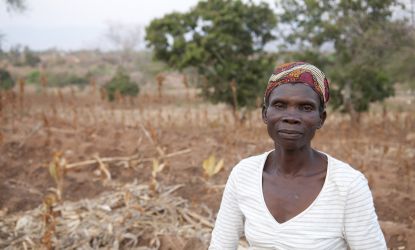
Tackling violence against women
Miriam was just 14 when she was forced to marry her husband. "It was a violent marriage," she says. "He was beating me with a belt, pushing me against a door frame, a wall, he knocked out my teeth."
Miriam now works as a volunteer with ActionAid Malawi partner organisation, Rumphi District Women’s Forum, intervening in cases of gender-based violence or early forced marriage.
"You can find a man of 60 years old - he can marry a girl of 14 years old if he has money… We had another case last year whereby we fought and we brought a girl back. She got married at an early age but we negotiated with the police and brought her home.
"I saw what happened to me, that’s why it pains me and why I wanted that girl to come home. I feel happy that the child is back home and continues with her education... My hope for the next generation is to encourage them to work hard in school. These boys, men, will be there forever, but if girls have an education they will say no, they will not face the violence we are facing."
Read more about our work on ending child marriageMiriam helps women experiencing domestic violence or girls facing early forced marriage in Rumphi District, Malawi
Arjen van de Merwe/ActionAid
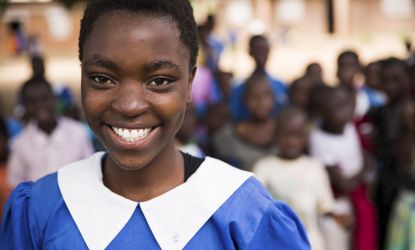
17-year-old Vast from Malawi can now stay in school when she has her period, thanks to support from ActionAid
Samantha Reinders/ActionAid
Helping girls stay in school on their period
17-year-old Vast used to be scared of standing up in class to answer a question when she was on her period. Without access to sanitary pads, Vast had to wear bulky strips of cloth known locally as a ‘nyanda’ to stop leaks when she had her period.
She said: "I used to miss out on classes about three days a month. I was afraid that people might laugh at me as the nyanda shows at the back of the uniform. I got laughed at before by boys."
ActionAid gives menstrual products to girls like Vast so they don't have to miss school when they have their period. The pads are more absorbent, reliable and discreet than the nyanda.
"They make a huge difference," said Vast. "Now I can play. I can even play netball. With the pads I can chat with my friends. And in class I can stand without being conscious of what is behind me."
Find out more about our work on periodsFootnotes
- 1 https://www.unicef.org/malawi/media/526/file/Child%20Marriage%20Factsheet%202018.pdf
- 2 https://databankfiles.worldbank.org/public/ddpext_download/poverty/987B9C90-CB9F-4D93-AE8C-750588BF00QA/current/Global_POVEQ_MWI.pdf
- 3 https://www.unicef.org/malawi/sites/unicef.org.malawi/files/2020-07/Spotlight_Ending_Violence_Against_Women_andGirls_v2_15062020_WEB_0.pdf
Page updated 29 January 2025
